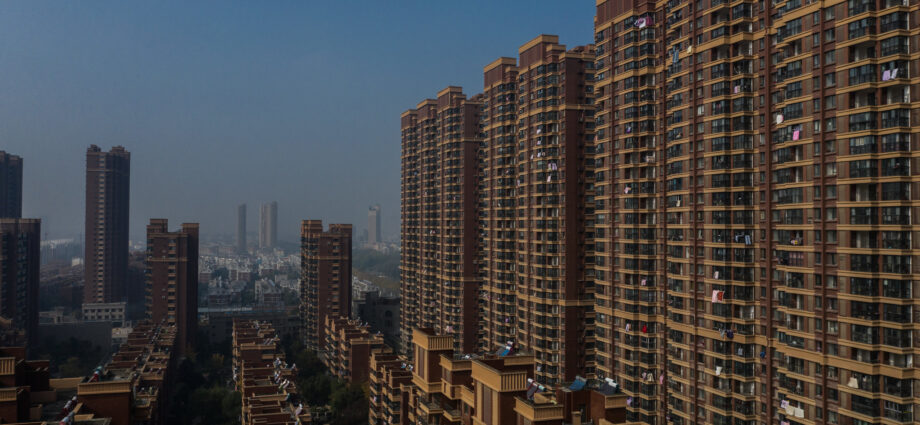PHOTO: Chinese apartments. FILE
Beijing: Liu Hong and his parents have four residences spread across various Chinese cities. Three of them are vacant at any given time.
The 36-year-old, who works as an auditor in Shanghai, paid 320,000 yuan (about $47,000) 13 years ago for an apartment in Harbin, the northernmost city in Heilongjiang province. It’s only two blocks from her parents’ home, which was given to her free of charge by the school her father worked at three decades ago – a practice that was common in mainland China at the time. .
According to Liu, my parents insisted that I find my place because they were convinced that I would eventually return to Harbin and live there or that I might need it to save money before the wedding.
“None of that happened, so my parents now live with me in Shanghai for half a year when they both retired.”
After deciding to settle in the city, Liu spent 2.6 million yuan on a two-bedroom apartment in Shanghai during the market boom in 2015.
Between October and April, when both Harbin and Shanghai are very cold, her parents move to Haikou in the southern Chinese province of Hainan, where they have a small holiday home.
“It is difficult to find a tenant or buyer in Harbin. We simply leave our old apartment to sit vacant for long periods of time. Our family alone has two or three houses that are vacant for most of the year, according to the theory, Liu said.
The family situation is by no means unique. Many estimates place the number of vacant apartments in mainland China at millions.
This will probably create problems for China’s already volatile housing market as a surplus of vacant homes could drive prices down further.
In its most recent study, the Chinese property think tank Bic Research Institute (BRI) warned that “China has no shortage of homes, sitting very empty, and such high vacancy is risky.”
“A large potential supply is represented by vacant homes. When predictions for the housing market turn negative, a significant number of vacant homes will be put on the market, which could add to downward pressure on home prices. .
According to a BRI report published earlier this month, the average vacancy rate in mainland China is 12.1%. This is significantly higher than in the UK, where only 0.9% of homes are vacant, where the figure is 11.1%, and 9.8%, where it is in Australia.
According to a study conducted last year by Ren Zepping, a former economist at the Center for Development Research, that rate translates to about 50 million vacant apartments. There are about 400 million homes on mainland China, according to official figures on the number of homes built since their estimate in 2020.
READ MORE VIA NEWSTRACK LIVE
MOST POPULAR
 EX – Superstar real estate agent JAILED
EX – Superstar real estate agent JAILED Prominent Aussie real estate agent stabs a woman
Prominent Aussie real estate agent stabs a woman NBR rich list 2022
NBR rich list 2022 New kiwi Property TV Show: RICH LISTERS
New kiwi Property TV Show: RICH LISTERS Hotelier reveals the seven things you should never do in a hotel room | WATCH
Hotelier reveals the seven things you should never do in a hotel room | WATCH Abandoned land for sale
Abandoned land for sale Who is Matthew Brian Ramsay? Prominent real estate agent accused of stabbing best friend’s wife | WATCH
Who is Matthew Brian Ramsay? Prominent real estate agent accused of stabbing best friend’s wife | WATCH Reality stars ordered to pay nearly $2k after threatening to expose their landlord
Reality stars ordered to pay nearly $2k after threatening to expose their landlord Marcus Lush – the proud owner of a “Gorse Farm”
Marcus Lush – the proud owner of a “Gorse Farm” Falling house prices put some homeowners into negative equity
Falling house prices put some homeowners into negative equity
















